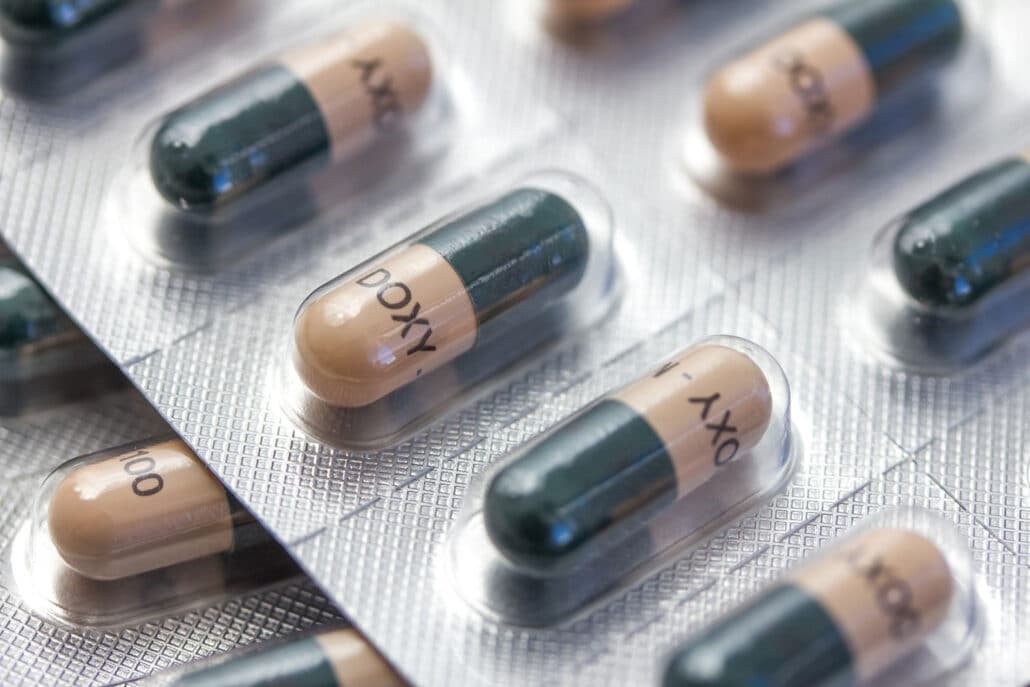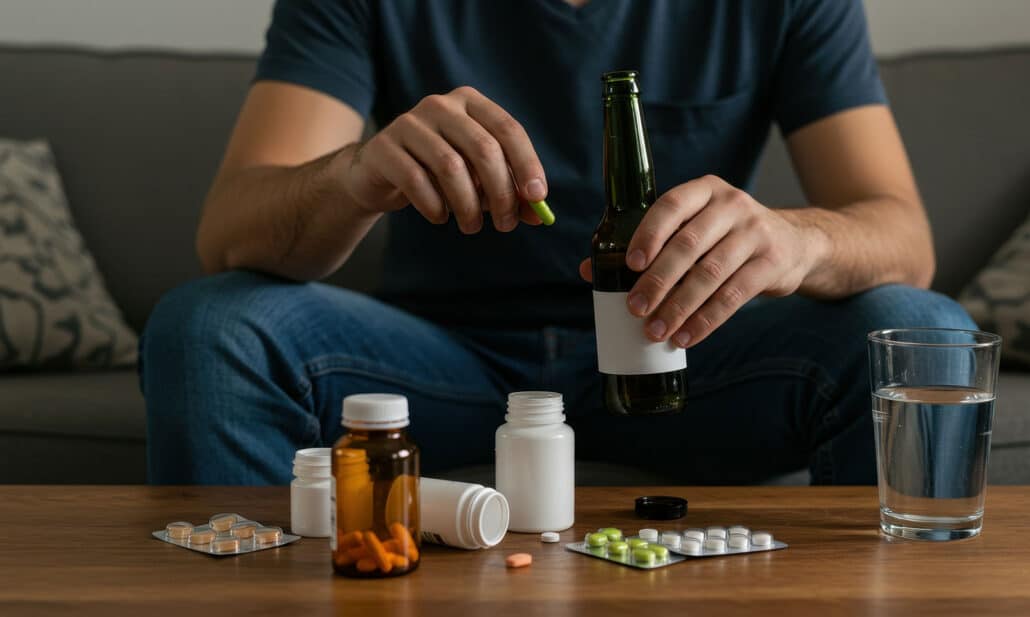Doxycycline is classified as a tetracycline antibiotic. This drug is prescribed to patients experiencing bacterial infections. As a broad-spectrum antibiotic, doxycycline is used to treat various conditions with a reasonable success rate.
This drug can be administered intravenously or through oral medication. Doxycycline is only available for patients with a prescription. It is used to treat many different types of bacterial infections and skin conditions. It works by reducing inflammation in the body.
Table of Contents
How does doxycycline work?
This drug slows the growth rate of bacteria, reducing the intensity of any infection. In certain skin conditions, this inhibition can directly affect the level of sebum produced by the skin. This is the case when medicine is given to treat acne, for example. Skin conditions like rosacea also respond positively to the reduction of inflammation. As a result, the rash on the skin’s surface reduces dramatically after doxycycline is introduced into the system.

What conditions are treated with doxycycline?
The class of drugs called tetracyclines will inhibit the production of a specific protein. Doxycycline is one of these drugs, inhibiting the growth and replication of these bacterial proteins. It can also help to prevent bacterial infection from occurring in the first place.
There is a variety of skin and respiratory diseases that respond well to the use of doxycycline:
- Lyme disease, malaria
- Gum disease, pneumonia
- Urinary tract infections, or UTIs
- Sexually transmitted infections like chlamydia, gonorrhea, and syphilis
- Skin conditions like acne and rosacea
- Food poisoning
- Allergic reactions to penicillin

Does alcohol inhibit doxycycline?
According to a research paper published by the National Institutes of Health, “doxycycline may have reduced efficacy in chronic alcoholism.” Understanding how doxycycline inhibits bacterial growth can be helpful when considering how alcohol may interfere with this process.
In general, drinking alcohol while taking medications is contra-indicated. This idea holds firm even after studies show that alcohol drinking with doxycycline demonstrates no severe side effects or allergic reactions in study groups.
Heavy drinking and alcoholism are considered behaviors that can reduce the benefits of doxycycline, and the reasons are listed here:
- Liver function: Ingesting alcohol while taking doxycycline places a double load on the liver, which functions as a detoxification system.
- Metabolism: The liver breaks down substances in the body, including alcohol and medicines like doxycycline. Placing too much stress on this organ can impede the beneficial effects of medicines.
- Excessive drinking: The question of quantity is a critical consideration in weighing the risks of alcohol consumption. Small amounts may be harmless, but heavy drinkers face more significant risks.
Doctors tend to recommend that patients avoid mixing alcohol and medication. This will reduce the chances of the alcohol interfering with the medication. Even if an occasional drink is consumed, the liver works extra hard to break it down. This can impede the medicinal effects of doxycycline. The immune system is also negatively affected by drinking large amounts of alcohol.
When antibiotics are mixed with alcohol, doxycycline and alcohol can interact negatively with some people. Individuals who drink heavily or have liver problems are at the most significant risk. Suppose the person has a healthy liver and no compulsive or heavy drinking history. In that case, a single alcoholic drink on occasion is unlikely to have negative consequences or impede the efficacy of the medication.

The liver, alcohol, and doxycycline
The liver functions as a blood filter and detoxification organ. It breaks down the substances that come into the body, including alcohol. Alcohol can affect the liver’s function, which impedes its ability to do its job. The class of medications known as tetracyclines can also adversely affect the liver.
Doxycycline is a tetracycline antibiotic. A recent study on this drug demonstrated a link between doxycycline’s drug class and liver damage. When the two are combined, this risk factor increases. The damage will likely be more severe if the person’s liver is already compromised.
Doxycycline is taken to treat bacterial infections, and drinking alcohol can weaken its ability to do this job. The liver must work hard to break down any alcohol entering the system. The negative effect of alcohol on the body’s immune system can make it even harder to fight the infection.
A person with a healthy liver and immune system is unlikely to be affected to the same extent as someone who’s immunocompromised and alcoholic. Alcohol drinking can reduce the immune system’s function, consume energy and produce inflammatory byproducts. Each person needs to weigh their health status against these potential risk factors.
What are the side effects of doxycycline?
The side effects of doxycycline can resemble the same symptoms of a hangover. This includes things like headache, nausea, diarrhea, and vomiting. People will respond differently to the medication, so avoiding alcohol will allow the doctor to know if the medication causes side effects. If possible, refrain from drinking alcohol while taking doxycycline.

When is it safe to resume drinking?
Alcohol consumption will not wholly stop doxycycline from working, and many people will experience no serious side effects by drinking lightly while taking this medication. It is best to wait 48 hours after taking your last dose of doxycycline to resume drinking alcohol. However, if you want to be completely safe, wait five days after your last dose to start drinking again. Waiting the full five days will give your system enough time to fully digest the medication.
Substances to avoid while on doxycycline:
- Antacids and antibiotics
- Medications made with bismuth
- Isotretinoin or warfarin
- Phenytoin, carbamazepine or ciclosporin
Healthcare professionals recommend avoiding any substance that makes the liver work hard while taking doxycycline. Consult your health provider if you have any history of alcoholism, liver disease or other contra-indications. Consider getting a consultation if you are taking other medications.
To ensure the best possible health outcomes, prepare a list of any medications you are currently taking. This will allow the doctor to consider other options before prescribing doxycycline. Add any vitamins, supplements, or herbs to this list. Mention any iron, magnesium, zinc, calcium, or aluminum supplements.
Recovering from addiction or alcoholism can be difficult, but there is no need to engage in this struggle alone. There is always help available at Long Island Interventions. Our friendly staff can help you to understand the root causes of alcoholism and addiction. This environment is where recovery is the top priority, so contact Long Island Interventions for more detailed information.
Published on: 2022-10-31
Updated on: 2025-05-06

